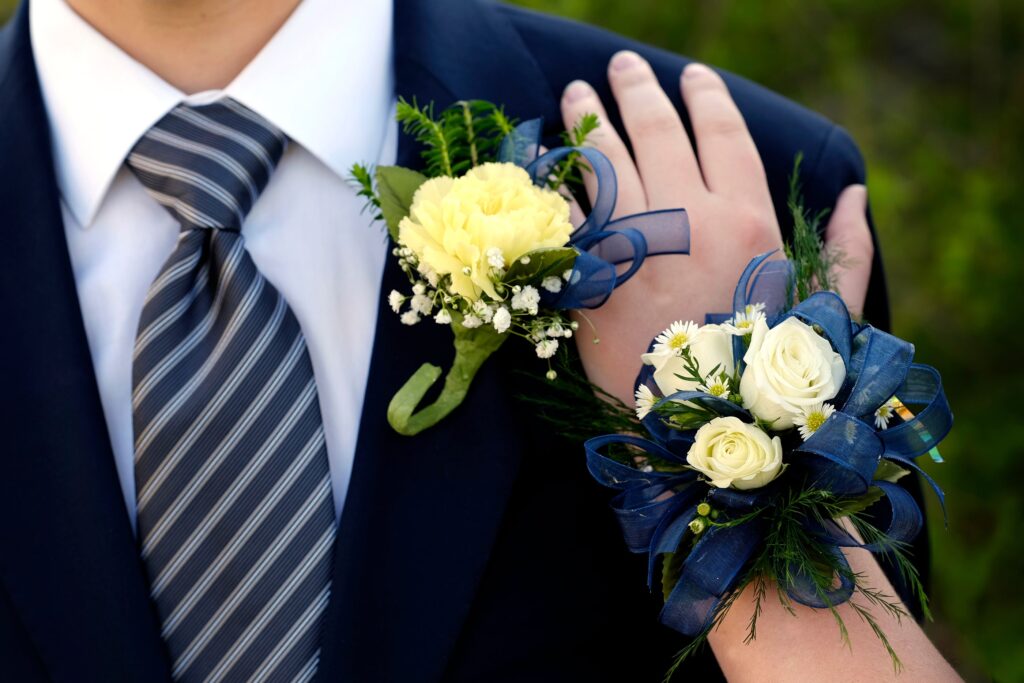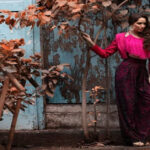Corsages those delicate arrangements of flowers, have long held a special place in the realm of formal occasions. Whether adorning a woman’s dress or wrist, these petite bouquets are more than just a decorative accessory; they are a symbol of admiration and connection, often presented by a date at events like homecomings, proms, and weddings. In this article, we delve into the rich tradition and significance of corsages, exploring their history, cultural variations and enduring appeal.
Origins and Evolution
The origins of corsages can be traced back centuries, with their roots intertwined with various cultural practices and customs. In ancient times, flowers were used for adornment and symbolism in ceremonies and celebrations, signifying fertility, love, and prosperity. Over time the tradition of wearing flowers evolved, eventually leading to the creation of corsages as we know them today.
One of the earliest documented uses of corsages dates back to medieval Europe, where they were worn as part of elaborate court attire. During this period, noblewomen would adorn their dresses with small bouquets of fragrant flowers, not only for their aesthetic appeal but also for their symbolic significance. These floral arrangements were often exchanged as tokens of affection and esteem during formal gatherings and festivities.
As time progressed, corsages became increasingly popular across different social classes and were adopted into various cultural traditions. In the Victorian era, for example, corsages became synonymous with romantic courtship and were often exchanged between lovers as a gesture of love and devotion.
Cultural Significance
The significance of corsages varies across different cultures and regions, with each society imbuing these floral arrangements with its own unique meanings and customs. In some countries, such as Japan, corsages are an integral part of traditional ceremonies and rituals, symbolizing purity, grace, and reverence. In contrast, in Western cultures, corsages are more commonly associated with formal events like weddings, proms, and dances.
In many Western societies, corsages play a prominent role in rites of passage and milestone events. For instance, at proms and homecomings, teenagers often exchange corsages and boutonnières as a symbol of their romantic connection and formal attire. This tradition not only adds an element of elegance to the occasion but also serves as a tangible reminder of the special bond shared between partners.
Weddings are another occasion where corsages hold significant cultural importance. In addition to being worn by bridesmaids and female guests, corsages are often worn by the mothers and grandmothers of the bride and groom as a symbol of honor and respect. These floral adornments not only complement the overall aesthetic of the wedding but also serve as a heartfelt gesture of appreciation towards the matriarchs of the family.
Symbolism and Tradition
Beyond their aesthetic appeal, corsages are laden with symbolism and tradition, making them a cherished keepsake for many individuals. The flowers chosen for a corsage often carry symbolic meanings that reflect the sentiments of the giver or the significance of the occasion. For example, roses are commonly associated with love and romance, making them a popular choice for prom corsages, while lilies symbolize purity and virtue, making them a fitting choice for wedding corsages.
Moreover, the act of exchanging corsages and boutonnières is steeped in tradition and etiquette, with each element carrying its own symbolic significance. In some cultures, the color and style of the corsage may convey subtle messages or convey cultural norms, adding an additional layer of meaning to the exchange.
In addition to their symbolic significance, corsages also serve practical purposes, such as providing a fragrant accent to formal attire and serving as a focal point for photographs. The meticulous craftsmanship and attention to detail that goes into creating corsages further enhances their allure, making them a cherished accessory for formal occasions.
Modern Trends and Innovations
While the tradition of wearing corsages remains steadfast, modern trends and innovations have led to a myriad of creative interpretations and designs. Today, florists use a wide array of techniques and materials to craft corsages that are as unique as the individuals who wear them. From intricate floral arrangements to unconventional embellishments, there is no limit to the creativity and imagination that can be infused into modern corsage designs.
Furthermore, advancements in technology have made it easier than ever to personalize corsage’s and create bespoke designs tailored to individual preferences. Online platforms and mobile apps allow customers to browse through a vast selection of flowers, colors, and styles, enabling them to create custom corsage’s that perfectly complement their attire and personality.
Conclusion
Corsages represent far more than just a decorative accessory; they are a timeless symbol of affection, tradition, and elegance. Whether worn at proms, weddings, or other formal events, corsage’s serve as a tangible expression of admiration and connection, enriching the significance of these special occasions. As the tradition of wearing corsage’s continues to evolve, one thing remains certain: the enduring allure and timeless elegance of these floral adornments will continue to captivate hearts for generations to come.







